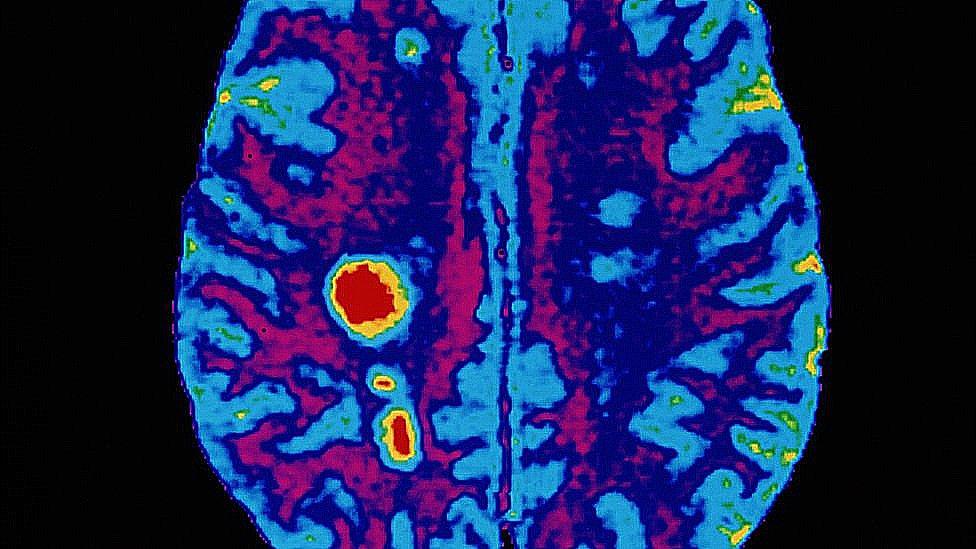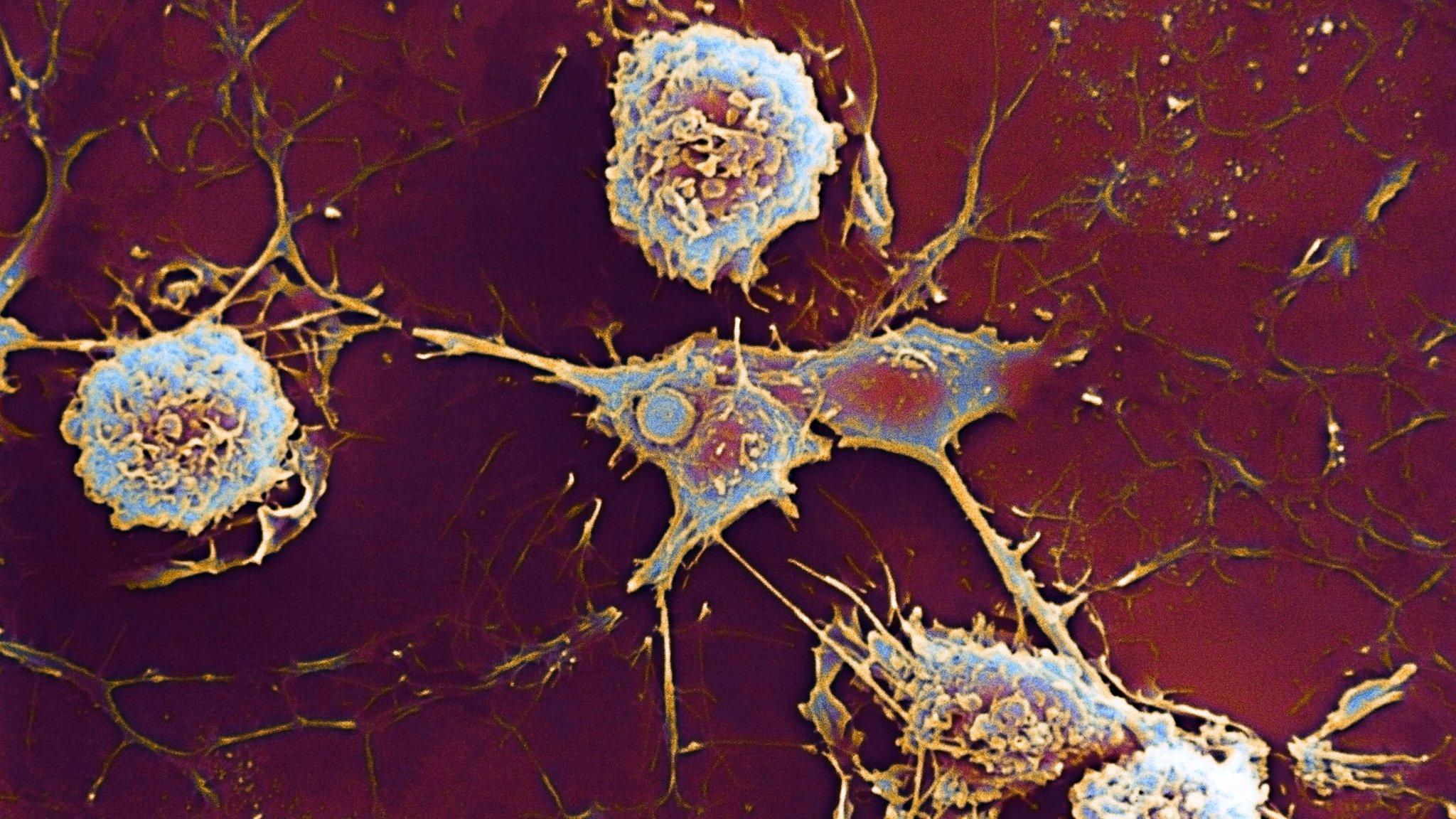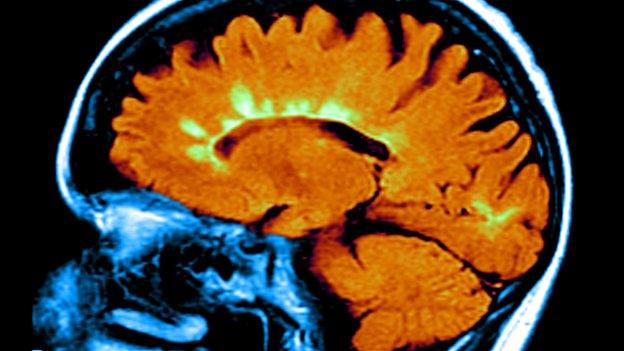'Multiple sclerosis drugs should be offered earlier'
- Published

People with the most common form of multiple sclerosis should be offered drug treatment earlier, a charity says.
The Multiple Sclerosis Society's report suggests there is a "wait-and-see" approach by doctors which needs to end.
But drug watchdog NICE says while this "disease-modifying therapy" can help in some cases, the benefits need to be weighed carefully against side-effects.
It is reviewing exactly when and how some of these relatively new treatments should be used.
'Clock never stops'
Multiple sclerosis (MS) is an incurable condition that can lead to sight loss, pain, fatigue and disability. It affects around 100,000 people in the UK.
Many have a relapsing, remitting version - where they experience flare-ups of symptoms and then have periods where symptoms ease or disappear.
The new review - a result of meetings between patients, medics, charities and researchers - suggests that contrary to some previously held views, the disease may continue to get worse during the remitting phase.
It argues that prompt treatment with disease-modifying medicines may help in these cases.
Michelle Mitchell, of the MS Society, said: "Relapsing, remitting MS has been redefined - we now know the clock never stops with this disease and neither should our fight against it.
"In the UK, the most common treatment option for MS in its early stages is currently no treatment and this needs to change for the sake of tens of thousands of people's health."
The organisation is encouraging doctors and patients to agree plans for treatment quickly - within six months of diagnosis.
But Dr Paul Cooper, a brain specialist who advises the National Institute of Health and Care Excellence (NICE) says although disease-modifying drugs have a role in established relapsing, remitting disease, there is still debate about their use early on in the condition.
He added: "These drugs are potent with potentially long-term side-effects and consequences, therefore we have to balance the risks and benefits.
"NICE is looking into these issues but the analysis is not yet complete and the data needs to be looked at carefully."
He says there are other things that can help people with multiple sclerosis, including better accesses to specialists and physiotherapy.
NICE plans to publish a new appraisal of drugs used to treat MS in 2017.
In the meantime, doctors can prescribe these drugs, guided by specific criteria, including the number of previous relapses.
People with multiple sclerosis can also be diagnosed with a primary progressive form of the condition where symptoms get gradually worse over time - without periods of remission.
According to the NHS, there is currently no treatment that can slow the progress of this form of the disease.
- Published6 August 2015

- Published9 May 2014

- Published26 August 2015
